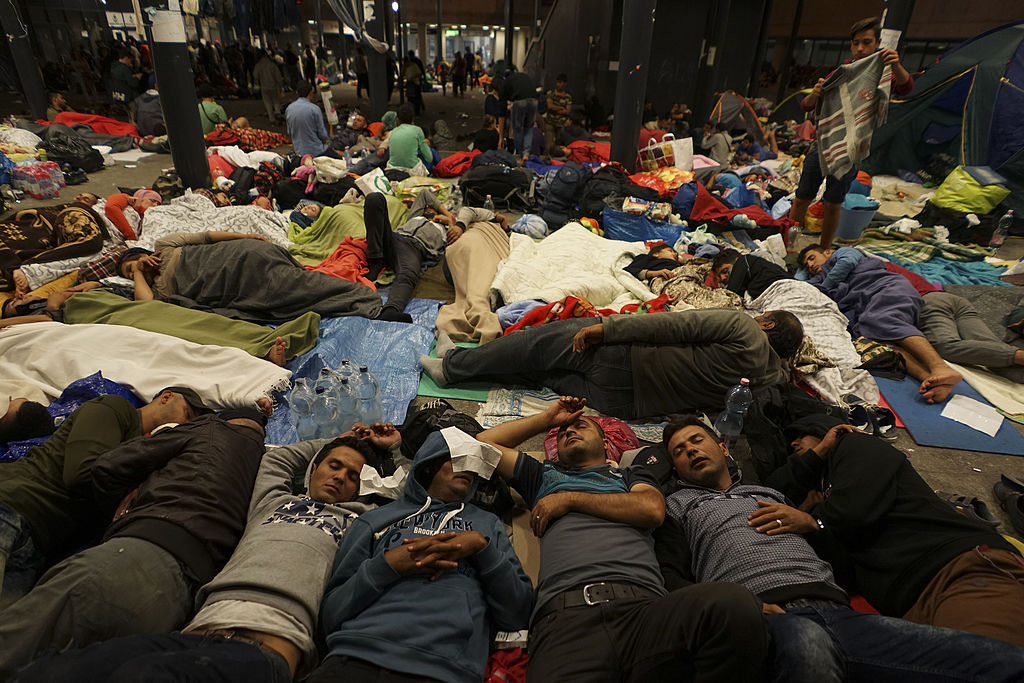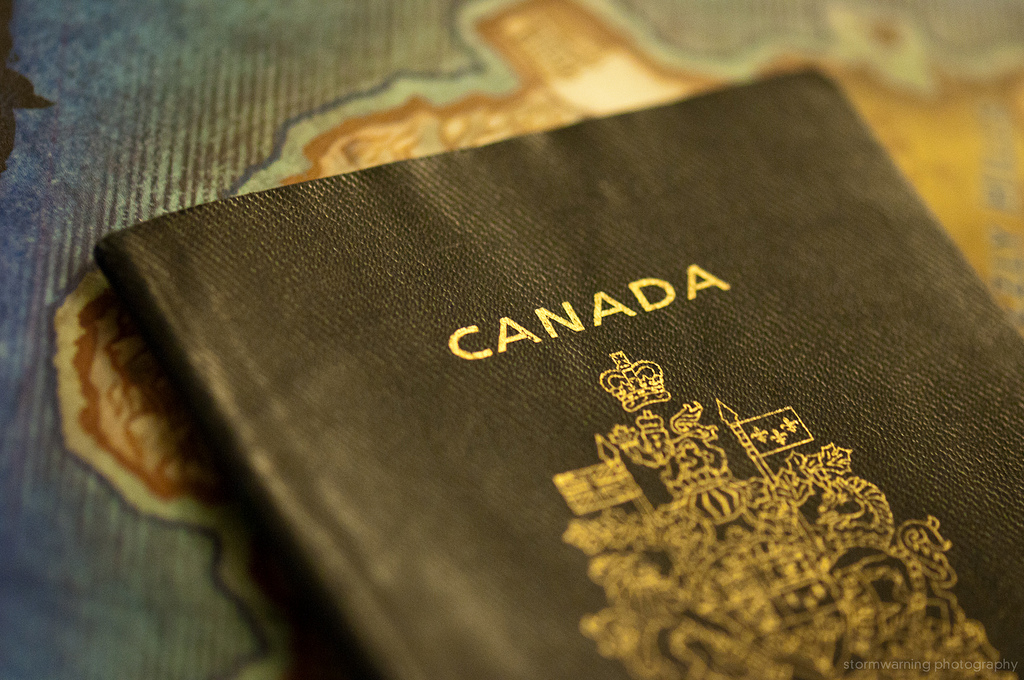Lack of Resources Causes Immigration Appeals Backlog
Applicants Stuck in the Backlog Often Depend on Top Appeal Lawyers
Currently, there is a serious backlog of immigration appeals before Canadian review boards and courts. It’s causing lengthy wait times for applicants who legitimately expect to receive a decision. This wait is also separating applicants from their families for prolonged periods of time, resulting in significant hardship. A lack of resources and adjudicators assigned to deal with appeals cases is responsible for this backlog. The influx of immigration cases has not helped ease the strain. For more information and help with the immigration appeals process, contact top appeal lawyers in Canada.
Significant Wait Times for Families
The former Conservative government’s introduction of immigration reforms in 2012 has caused a significant decrease in the number of adjudicators handling immigration appeals. As of June 2016, the number of adjudicators had fallen from 164 to 86. This has caused a major backlog in the processing times. Applicants must wait lengthy periods of time to find out the decision of their applications.
One couple waited more than two years to receive a negative decision on their spousal sponsorship. They had to wait an additional 18 months for their appeal hearing. Even if they win the appeal, they may need to wait another year before they receive sponsorship. These lengthy delays are causing significant stress for those waiting to be reunited with their parents, spouses, and children.
Lengthy Processing Times
According to the Immigration and Refugee Board (IRB), the 2016 national average processing times for appeals was 17.8 months. Eastern Canada had an average of 26.8 months; Central Canada’s average was 16.4 months; and British Columbia and the Prairies had an average of 9.4 months.
A spokesperson for the IRB said this backlog is due to the decreased number of decision-makers and a period of high intake for cases. The backlog in cases includes immigration appeals such as removal orders and refused sponsorship applications. The IRB is also handling an influx and backlog of refugee claims, assigning more staff to handle this influx, leaving less staff available to work in the Immigration Appeal Division (IAD).
Lack of resources and the government’s refusal to appoint more adjudicators are to blame for this backlog. The IRB hoped to reduce the backlog of cases from 10,400 to 7,000 by the end of 2016, and to reduce processing times down to 10 months by adding more adjudicators and implementing an electronic case filing system and a pilot program for processing appeals. The IAD also has an alternative dispute resolution to resolve appeals before going to a full hearing, but only 40 to 45 percent of all appeals are resolved through this process. It is essential for the government to carefully evaluate this situation and allocate the additional resources necessary to resolve this backlog and the current unfair wait times.
Refugee Resettlement Numbers the Highest Since 1980
2016 Canadian Refugee Immigration Numbers the Highest Since The Resettlement Of Indochinese Refugees
Canada has been at the forefront of refugee resettlement for decades. Throughout Canadian history, Canada has resettled thousands of refugees who have fled war, violence, persecution, and hunger. These refugees left their homes because their lives, and the lives of their children, were in danger. Sadly, war, violence, and poverty still plague the world, forcing many to leave their homes in search of a safety. Canada’s response to refugees throughout history has shown that Canada is capable and welcoming of refugee resettlement, no matter the numbers. For information on immigration and refugee resettlement, contact a Canadian refugee lawyer.
Historic Significance
The United Nations High Commissioner for Refugees (UNHCR) recently revealed that, in 2016, Canada resettled its highest number of refugees since 1980. Last year saw the resettlement of 46,700 refugees, the majority (33,266 persons) coming from Syria. In 1980, Canada resettled 40,271 Indochinese refugees, from Cambodia, Laos, and Vietnam, specifically. Both of these large resettlements were in response to global refugee crises, where thousands (if not millions) were displaced by conflict, violence, and war.
Stepping Up to Help
Last year, the United States was the leader of refugee resettlement, accepting 84,995 refugees into their borders. However, this year, refugees will have a challenging time resettling in the U.S. President Donald Trump is attempting to cap the number of refugees accepted and ban migrants from certain Muslim-majority countries. Although his latest attempt is being challenged by U.S. courts, many refugees no longer feel welcome in the U.S. As a result, many are looking to Canada as a better option for a new home country.
Looking Ahead
The UNHCR plans to continue working with Canada to resettle more refugees. According to the UNHCR, there are currently 21 million people around the world who have been forcibly displaced from their home countries. Also, there are 1,190,000 refugees who need resettlement this year. By working with countries (such as Canada) who are capable and willing to resettle refugees, the UNHCR can help those who need safe homes and ultimately save more lives.
Over the years, Canada’s government and people have welcomed many refugees and helped them with their resettlement. It may take time for people to resettle and become accustomed to their new lives in Canada. With the right support and resources, though, it is possible for refugees to successfully integrate into Canadian society. A Canadian immigration lawyer can help those who are looking to settle in Canada and who need assistance with the immigration application process.
Recommended Improvements for the Canadian Immigration System
A Look at Recent Parliamentary Recommendations to Improve Canada’s Immigration System
Although considered one of the best in the world, Canada’s immigration system still has room for improvement. To fully meet the needs of applicants and improve their experience with the system, Immigration, Refugees and Citizenship Canada (IRCC) must continue to review and update its system, especially with how it communicates with applicants. IRCC should make its system more inclusive of all applicants and their diverse social and economic needs. An immigration lawyer in Canada can help those who need assistance with the immigration application process.
The Standing Committee on Citizenship and Immigration recently released a report with recommendations to improve the Canadian immigration system. Canada needs to modernize its system to meet the various demands of all immigrants, including the more than 300,000 immigrants expected to settle in Canada this year. To do so, Canada should look at the world’s best immigration systems, analyze key service performance indicators, and consider the standing committee’s recommendations.
Here are a few key recommendations the committee made, along with ideas for implementation:
Improve Call Centre Communication
The standing committee’s report recommends retraining staff to communicate better with non-English or French speakers. It also recommends having an interpreter available upon request. Staff should also receive specialist training for various immigration cases, such as: temporary residence, permanent residence, citizenship, refugees, and passports.
Need For a More User-Friendly Website
The report recommends that the IRCC website be accessible in additional languages other than English and French, use plain language, and offer virtual assistance. The ‘My Account’ section of the website should also be updated to make it easier to track and print applications, maintain a complete record of applications, and to link paper applications with applicants’ online accounts.
Improve Client Experience
Removing language barriers and financial barriers is essential for being more inclusive in the immigration process. Another recommendation is to allow alternative forms of payment for applications (i.e. applicants could pay at a bank if they can’t pay online with a credit card since not all applicants will have credit cards).
Periodic review and revision are necessary for application forms. This keeps them easy to understand and navigate, ensures they're up to date with the current immigration system, and helps evaluate and correct common errors found on applications. If an application is rejected, it's important to provide applicants rational, transparent, and justifiable reasons for the negative decision.
IRCC should also contact applicants through e-mail and other channels when: the application has common errors on it; payment was made incorrectly; and when processing times extend beyond the original estimate given to applicants at the time of application.
Other important recommendations include:
- Increase pre-arrival service sessions;
- Establish service standards and processing times, and publish these on the IRCC website;
- Include automatic client service feedback forms for applications
- Consult with current and past clients, service experts, and Canadians on how to improve client services;
- Establish a “Reconsideration Committee” to handle reconsideration requests within 15 days of an applicant’s negative decision; and
- Consider the cost-benefit analysis of regional immigration offices for in-person services.
These recommendations can make the immigration system more inclusive to the diverse needs of applicants. Improvements to communication, (online, by phone, and in person) will make the immigration process easier and reduce stress and uncertainty. This is especially true for those facing language barriers.
Canadians Support Immigration... With Caveats
While Canada Generally Supports Immigration, Some Tensions Remain
Canada hopes to welcome 300,000 new Permanent Residents (approximately 172,000 through economic visas, 84,000 through family sponsorship, and 40,000 refugees and protected persons) in 2017. These numbers only indicate those who are brand new to Canada – in addition, thousands of individuals every year take the steps necessary to further solidify their relationship to, and status in, Canada by becoming Canadian Citizens.
In stark contrast to the backlash witnessed in the United States and across Europe, perceptions on immigration and refugee resettlement in Canada remain largely positive. For example, approximately 8/10 Canadians surveyed perceive immigration as having a positive impact on the economy, while 58% support or want to enhance Canada’s refugee resettlement efforts.
Canada’s welcoming attitude is often attributed to the fact that many Canadians were themselves once newcomers (or descended from such), and that Canada remains largely unaffected by mass migration or immediate threats to border security.
Furthermore, Canada increasingly looks to foreign workers as a way to bolster other sectors by, for example, providing affordable labour in our agricultural sector and knowledgeable STEM workers in Canada’s growing tech sector.
Yet despite these positive perceptions of immigration, Canada continues to struggle with its multi-cultural identity.
Canada formally adopted multiculturalism—the belief that all citizens’ experiences and backgrounds deserve equal acceptance and respect—as an official policy in 1971, and further protected this belief by enshrining a number of individual freedoms in the Charter of Rights and Freedoms. Nevertheless, several polls indicate that Canadians are not willing to accept immigrants—let alone their beliefs—carte blanche.
One study found that 69% of Canadians uphold the belief that the Government should impose at least some conditions to immigrate, indicating that there is at least some threshold for who is considered a ‘desirable’ immigrant. Similarly, 68% of Canadians surveyed believe that immigrants should do more to fit in with ‘mainstream society’ both linguistically and culturally. Such sensitivities are reflected in Canada’s changes to the Express Entry System, which now awards more points to those with Canadian education, French language/bilingual skills, and family members already in Canada.
While these polls can be, and often are, deceiving, these results nevertheless indicate the tension between Canadian’s perception of immigration policies and their effects writ large, and their perception of immigrants themselves. Nevertheless, it remains highly unlikely that policies like those enacted in the United States will come into effect in Canada: not only is Canada continuing to develop new immigration streams to welcome more people in a variety of ways, but Canadians themselves are rejecting the discriminatory travel restrictions enacted in the US.
For now, Canada remains positive about, and open to, immigration. While this currently stems from positive perceptions related to the associated economic benefits—a reality reflected in the increase of economic immigration at the expense of refugee and protected persons resettlement—the fact that millennials are the most supportive of increased immigration and tend to view immigrants in a more positive light hopefully indicates that Canada’s attitudes to immigrants themselves will simultaneously become more welcoming as well.
Current Citizenship Revocation Regime Deemed Unconstitutional
The Federal Court finds that the Current Citizenship Revocation Regime is Unconstitutional
On Wednesday morning, the Federal Court of Canada upheld the sanctity of Canadian citizenship and once again affirmed the Canadian Bill of Rights as an important safeguard for human rights.
In Hassouna et al v Minister of Citizenship and Immigration Canada, eight separate applicants (one of whom was represented by Gerami Law P.C.) challenged amendments made to Canada’s citizenship laws via the 2014 Strengthening Canadian Citizenship Act. These amendments allowed the Minister of Citizenship and Immigration to revoke the citizenship of any Canadian who he considered had obtained this status by means of fraud, misrepresentation, or knowingly concealing material information without the right to an oral hearing. This was a drastic departure from the previous regime, which required the Government provide the opportunity for applicants to respond to the Minister’s concerns in an oral hearing before a Federal Court judge prior to their citizenship revocation, and empowered the Governor in Council – not the Minister – to make the final decision.
In the Federal Court decision, Hassouna et al v Minister of Citizenship and Immigration Canada Justice Gagne found that in the context of citizenship revocation, affected individuals are entitled to disclosure, an oral hearing (where there are serious credibility issues) in front of an independent decision-maker, and having the opportunity to present their special circumstances before the decision is made. This is based on section 2(e) of the Canadian Bill of Rights, which precludes the Government’s ability to “deprive a person to a fair hearing in accordance with the principles of fundamental justice for the determination of his rights and obligations.”
Importantly, Justice Gagne asserted that, “once acquired, the rights flowing from citizenship have vested” and they subsequently become rights. Furthermore, to comply with procedural fairness requirements, individuals whose credibility is seriously at issue must have the opportunity to respond in an oral hearing. In addition, disclosure must be guaranteed in order to provide the affected individuals’ a fair opportunity to state and know the case; the investigator and decision-maker must be separate individuals (currently, both roles are assumed by the Minister of Citizenship and Immigration); and given the high impact on the affected individual’s lives, the decision maker must consider equity and humanitarian and compassionate considerations.
Justice Gagne declined, however, to find that the current amendments violate sections 7 and 12 of the Canadian Charter of Rights and Freedoms. This is important, because the Government can easily overcome the rights enshrined in the Canadian Bill of Rights by explicitly stating as such (known as a ‘notwithstanding’ clause). While the Government could additionally maintain laws which violate the Charter, their ability to do so is much more constrained. Section 7 protects the “life, liberty, and security” of all individuals in Canada, and citizenship revocation as a general policy as not seen to engage these rights, as there is no general right to status as a citizen. Meanwhile, the effects of having been stripped of status were not determinative enough to trigger section 7, as they varied in each case (for example, deportation was available but not guaranteed). Likewise, the threshold for a section 12 violation – which protects against cruel and unusual treatment – was also not met: government policies are not considered treatments unless they specifically target identifiable groups (which was not considered to be the case), and citizenship revocation is not cruel nor unusual because individuals do not have a right to citizenship in the first place (only to keep it once conferred).
This decision further challenges the limitations of the Liberal Government’s Bill C-6, which seeks to amend the Strengthening Canadian Citizenship Act by recalling many of the barriers to citizenship imposed. Unfortunately, Bill C-6 does not currently address the issues litigated in this case. While the Senate has responded by passing an amendment calling for changes to this scheme, this Federal Court ruling requires changes to be made within the next 60 days unless the Government chooses to appeal within the next 30. In the meantime, these provisions still stand, and individuals whose citizenship is under review could still see it revoked. Nevertheless, this ruling has set an important precedent that once a Canadian, you have the right to remain a Canadian until an accountable, transparent, and just system finds otherwise.





